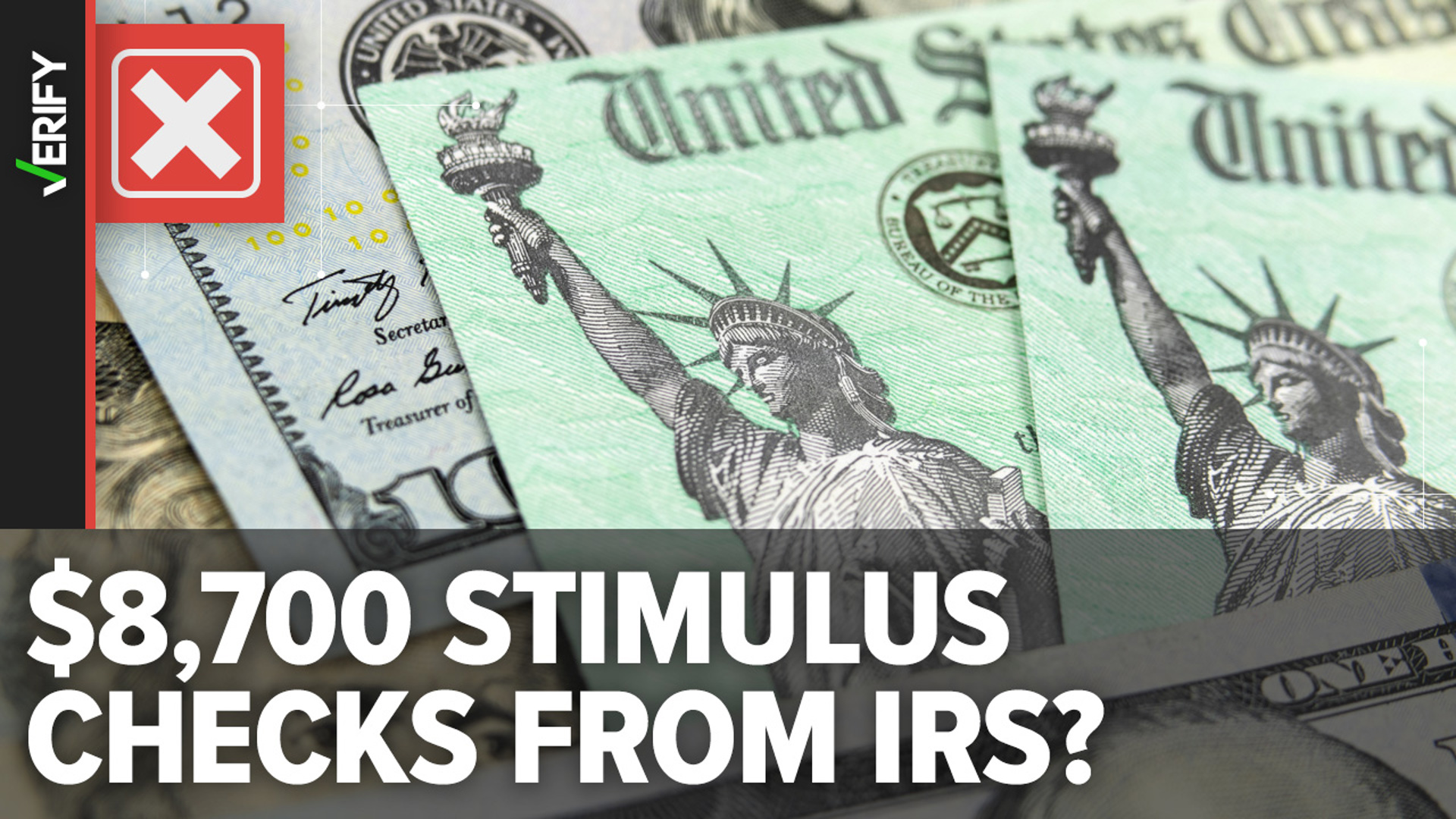During the COVID-19 pandemic, the Internal Revenue Service (IRS) sent out three rounds of economic impact payments or stimulus checks.
Qualifying Americans typically received between $1,200 and $1,400 for each stimulus check. The last payments went out in March 2021.
But there’s been a recent spike in Google searches about another round of IRS stimulus checks for $8,700. VERIFY also found multiple articles that claim there will be a new $8,700 stimulus check from the IRS.
One of the websites says the new checks are being sent out “as part of a broader initiative to stimulate the economy and assist individuals coping with financial difficulties during the epidemic.” Some websites also claim the payments are connected to the child tax credit, which is a tax incentive for parents.
The sites generally claim the payments are going out in mid-June.
THE QUESTION
Is the IRS sending out $8,700 stimulus checks?
THE SOURCES
VERIFY analysis of an article from “La Grada”
THE ANSWER
No, the IRS is not sending out $8,700 stimulus checks.
WHAT WE FOUND
The IRS is not sending out $8,700 stimulus checks. An IRS spokesperson directed VERIFY to a press release about scams that promise new Economic Impact Payments.
The release notes that “while the stimulus payments ended long ago, the related scheme has evolved and changed as scam artists look for new ways to adjust their message to trick people.”
In order for new stimulus checks to go out, Congress would have to pass legislation and President Biden would have to sign it into law, which has not happened.
The Child Tax Credit is also not sent in the form of a $8,700 payment, but as a credit associated with tax returns for eligible families. That credit amount was temporarily increased during the pandemic, but has since returned to its normal amount.
These false articles typically are created by content farms that “regurgitate dubious information and often rely on AI-generated articles with little or no human oversight,” McKenzie Sadeghi, AI and foreign influence editor for NewsGuard, previously told AARP.
The scam articles claim to inform readers about “exclusive” or “new” benefits that don’t actually exist with the goal of drawing as many people as possible to their websites, which have numerous advertisements.
“By bringing viewers and readers to their sites, they are hoping that people will, in turn, click on these advertisements and they will gain financial revenue,” Sadeghi says.
If it’s not clear where the article is getting its information from, that’s also a red flag, Sadeghi adds.
To avoid falling for the information in these fake articles, Sadeghi recommends scanning the article for any information that doesn’t add up, as well as the unnecessary repetition of key phrases.
Many of the articles about the nonexistent stimulus checks have discrepancies. For example, one website begins by saying the stimulus checks are “worth $8,700 in total.” The website later says “the proposed stimulus will provide $8,700 in monthly payments to qualifying families” and that “the maximum monthly payment” is $1,450.
Despite claiming the payment is either monthly or once a month, the website claims there will be one payment on June 15, and a second payment on December 15.
The website also says it's part of a “new financial aid initiative” started by the federal government, but never credits what the new program is or when it was created. There’s no clear source or sense of credibility for the author of the site, or where the claims came from.
These content farm articles are very common. VERIFY has previously debunked multiple claims that were spread by these websites.
Google results that highlight these suspicious websites may also amplify the false information, as VERIFY previously reported. When we searched for “8,700 stimulus check” on Google, the top result was a suspected content farm website full of misinformation.
The official IRS website should be the primary source for any programs or updates.

